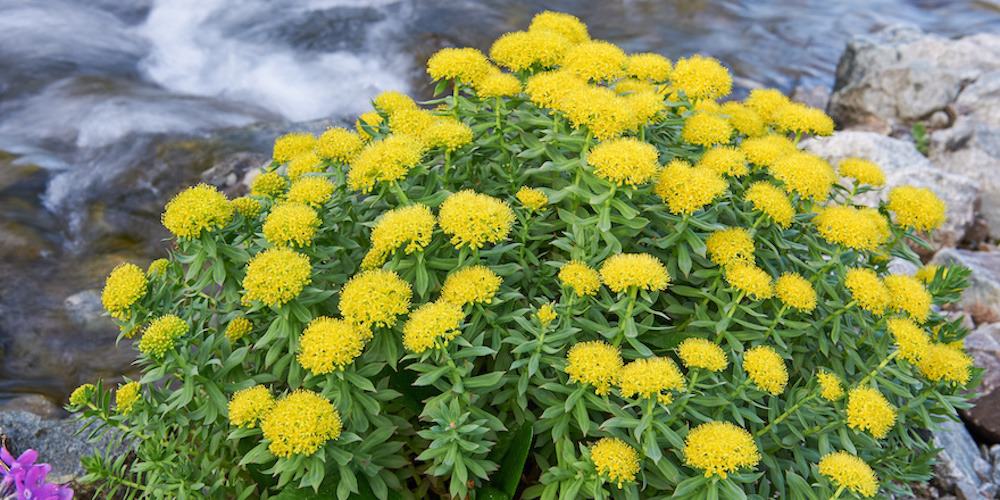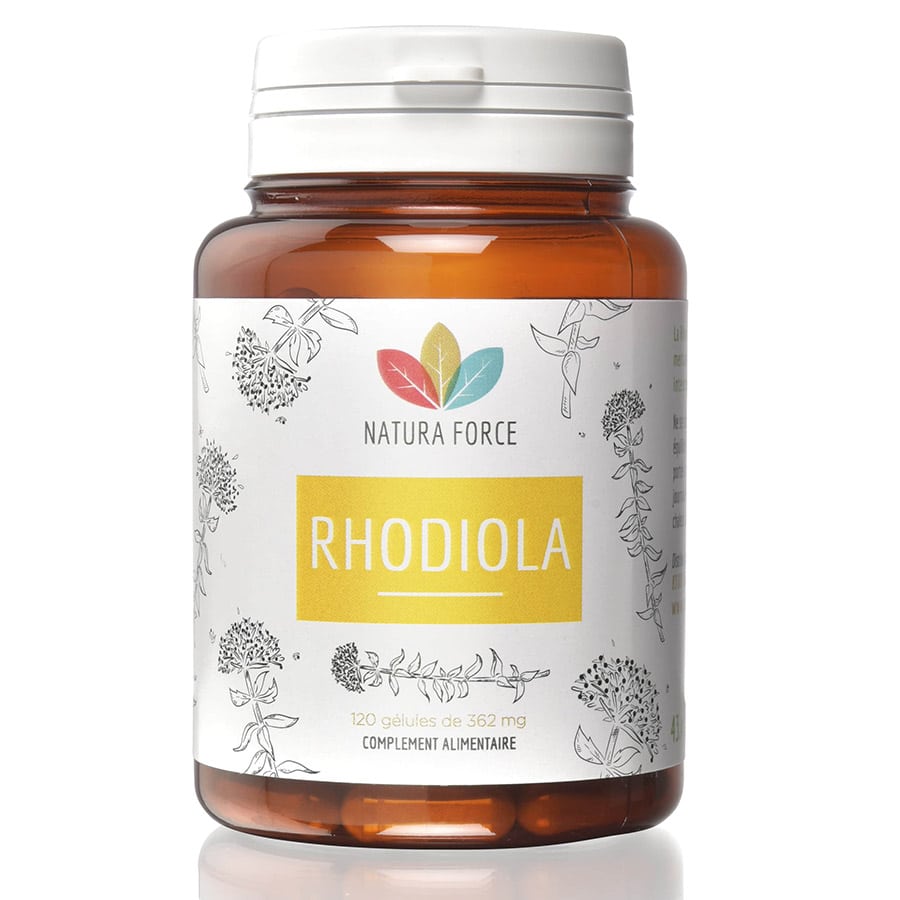BENEFITS OF RHODIOLA
✓ Reduces stress
✓ An anti-fatigue plant
✓ Helps reduce symptoms of depression
✓ Enhances physical and sexual performance
What is Rhodiola?
Rhodiola, also called rhodiola, roseroot or golden root, is a small plant with yellow-green flowers that grows in rocky terrain. It belongs to the family Crassulaceae, plants with fleshy leaves.
It originates from Scandinavia and grows in the cold regions: the Arctic, Iceland, the steppes of Central Asia, Siberia, Alaska. But it is also found in France, in the mountain ranges of the Alps and the Pyrenees.
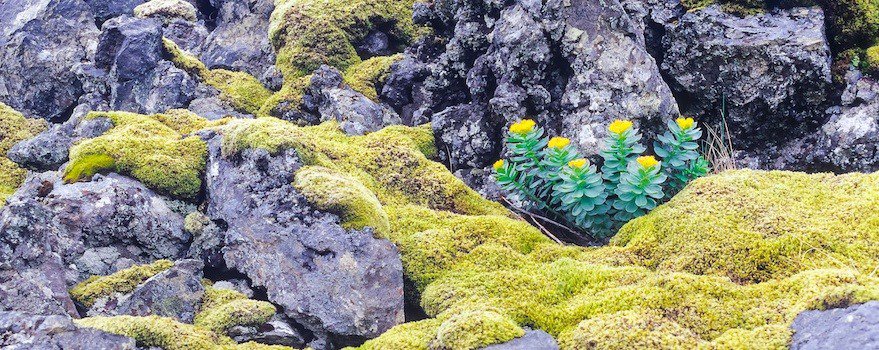
It is a perennial plant that withstands extreme temperatures (down to -40°C) and grows up to 3,000 meters in altitude. It is found in the wild but some countries also cultivate it.
Rhodiola is actually a category of plants. The variety rhodiola rosea is the one with the most medicinal properties. It has been used for more than 3,000 years by Siberians and Scandinavians as a tonic plant. Like the maca, rhodiola is among plants considered adaptogenic, meaning that it increases the body’s resistance to the stresses it may encounter.
It is a plant that helps overcome fatigue, particularly that related to stress. It reduces the symptoms of stress and overwork, such as insomnia, anxiety attacks or mood swings.
It helps reduce the effects of burnout and is an excellent natural antidepressant. Finally, it helps improve physical performance and endurance, particularly among athletes and mountaineers. Because it increases endurance in cold and helps prevent altitude sickness, climbers and hikers appreciate it greatly. They can use it as a natural pick-me-up.

Its active compounds, notably salidrosides, rosavins, rosarins and rosins, are responsible for its adaptogenic capabilities and the benefits attributed to it. The flower is not consumed directly; rather, the root is, infused in hot water or reduced to powder in capsule form.
Nutritional composition of Rhodiola
- 12 amino acids
- 20 vitamins and minerals
- Active compounds : salidrosides, rosavins, rosarins and rosines
- Antioxidants
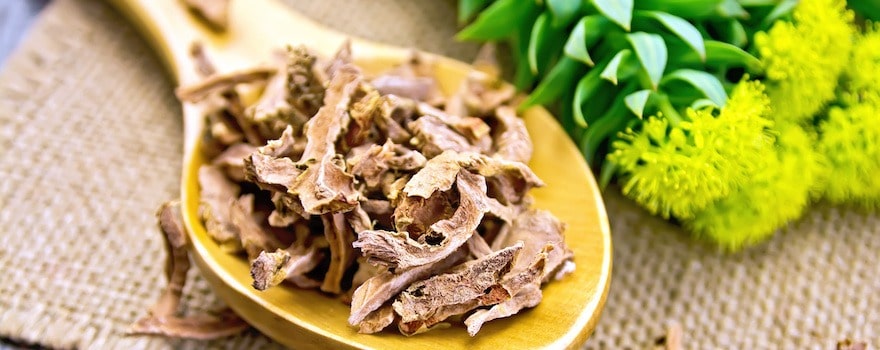
Buy Rhodiola: our selection
We recommend Natura Force’s rhodiola rosea. It is standardized to 5% rosavins and 2% salidrosides, its main active compounds. The capsules containing the concentrated extract are 100% plant-based.
Natura Force is a small French brand created by Thierry Sestrieres in 2015, after a trip to South America where he discovered the traditional use of superfoods such as maca in Peru or guarana in Brazil
❤ We like: The high concentration of active ingredients and the value for money.
★ Natura Force rating (Trusted Shops): 4.7/5
☞ Quantity: 120 capsules / 1 month supply
✔ Discount code -10% : DARWIN
The benefits of rhodiola
🧘🏻♀️ Reduces stress
The adaptogenic plants like rhodiola help the body overcome stress and its symptoms. Fatigue, anxiety, stomach aches… Several studies confirm rhodiola’s effectiveness in cases of stress.
In 2012, English researchers from the Chipping Norton Health Center administered 400 mg of rhodiola to 101 people leading stressful lives for four weeks. The stress symptoms reported by the patients decreased after only three days and continued to improve with the rest of the treatment.
Rhodiola is also effective in cases of burnout. This study conducted by German and Austrian researchers with 118 patients suffering from burnout shows that rhodiola is effective in alleviating its symptoms, including depression.
⚡️ An anti-fatigue plant
In Sweden, it is said that the Vikings owe their legendary strength and vigor to the consumption of rhodiola. In Siberia, a popular belief holds that rhodiola is given to newlyweds… So that they will have beautiful and vigorous children!
Scientific research has gone on to confirm these traditional claims by attributing anti-fatigue properties to rhodiola.
This study conducted in 2009 by Uppsala University in Sweden compared, among 60 people, the effectiveness of rhodiola on fatigue, depression and attention. The researchers showed that a 576 mg extract of Rhodiola rosea was more effective than a placebo on these symptoms in the subjects studied.
🙏 Helps reduce symptoms of depression
Depression is a common illness in our societies: 20% of adults in France will be affected at least once in their lifetime.
It is explained by a neurological reaction: depression occurs when there is an imbalance of neurotransmitters in the brain. Usually, doctors prescribe antidepressants to rebalance these neurotransmitters, but rhodiola also possesses this ability to rebalance.
This study of six weeks was conducted in 2007 by the Department of Neurology at Yerevan University in Armenia. 89 people suffering from mild to moderate depression were treated with rhodiola or a placebo (symptoms: insomnia, somatization, emotional instability). While those who took the placebo saw no improvement, those who consumed rhodiola saw their condition improve.
🔥 Enhances physical and sexual performance
People in cold regions, from Alaska to Siberia, have traditionally used rhodiola to boost their endurance and vigor. It is also believed to have benefits for libido.
In Ukraine, Prince Danila Galitsky, who lived in the 12th century, is still a legend because of his amorous exploits, which are attributed to rhodiola!
When it comes to improving endurance, the scientific community remains divided. Some studies show it is effective, while others show it is useless for physical exertion.
However, one of the more recent studies is this Italian study, which shows that a four-week course of rhodiola rosea in 14 individuals helps improve the body’s resistance to physical exertion and enhances recovery.
With regard to sexual performance, although this plant is traditionally found in ‘love potions‘, scientific research still needs to substantiate these claims.
A Russian study reported by the American Botanical Council nevertheless shows the effectiveness of rhodiola in cases of erectile dysfunction. Of 35 subjects who suffered from it, 26 who consumed rhodiola experienced a marked improvement in their sexual performance.
How to take rhodiola?
Consume the root of rhodiola rosea
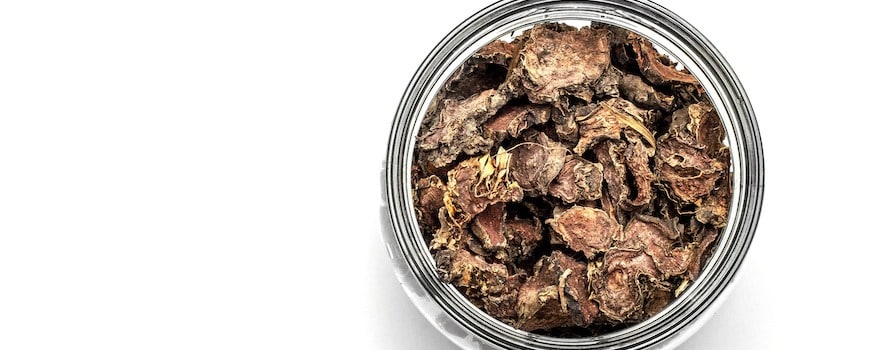
If the Inuit consumed the flowers as a decoction or ate them raw to treat tuberculosis, or even added the fleshy leaves to their cooking recipes, it is the root of rhodiola rosea that is consumed for its therapeutic effects.
The rhodiola root is called “rose” because of the slight rose scent it gives off. It can be found whole; in that case it is grated to make infusions or powder. It is available in herbal shops, dried, as powder, or as pieces of cut root. However, today rhodiola is more commonly found in capsule form.
In cases of mild depression, rhodiola can be combined with St. John’s wort, another “sunny” plant that treats seasonal depression or bouts of the blues. Rhodiola is often paired with magnesium, a mineral known for its anti-fatigue and anti-stress properties.
Rhodiola and saffron
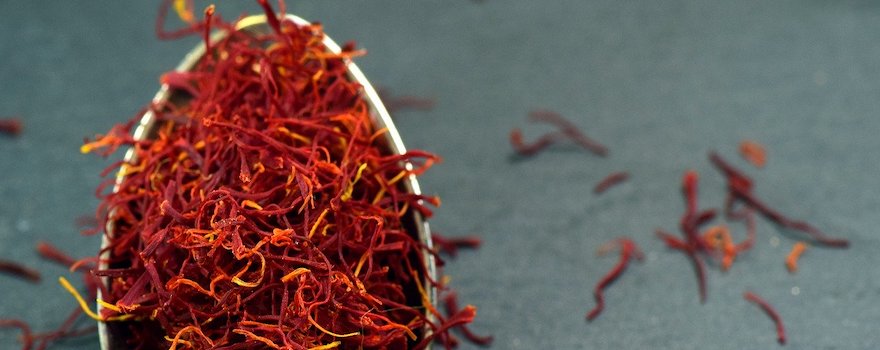
Some dietary supplements aimed at improving emotional balance feature a combination of rhodiola and saffron. Saffron is a spice obtained by drying the stigmas (the ends of the pistil) of flowers called crocuses. The rhodiola/saffron synergy is thought to reduce symptoms of depression and promote better adaptation to emotional stress.
Consume sustainably: choose organic, European rhodiola
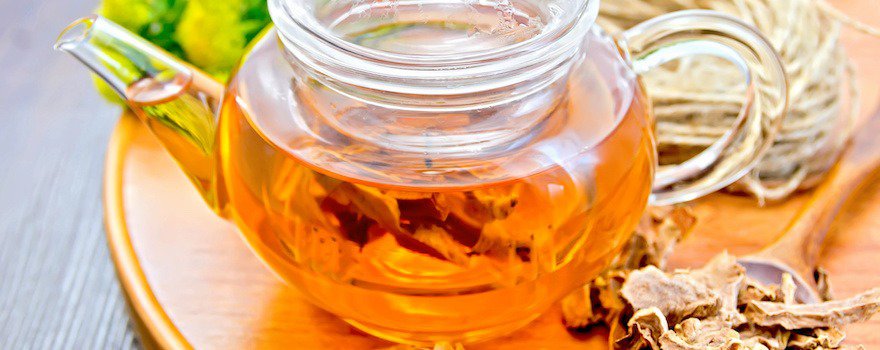
✓ It is preferable to buy organic rhodiola to enjoy all the plant’s benefits without residues of pesticides or chemical herbicides. Likewise, this ensures that the plant has not been irradiated, a common process in conventional agriculture to ensure preservation but whose health risks are unknown. Rhodiola can be found in health food or natural product stores, herbal shops, or on specialized websites.
✓ Although it grows in the French mountain ranges, its harvesting is prohibited. The plant’s slow growth means reproduction is difficult and it is among the threatened plants. The rhodiola found on the market generally comes from Eastern European countries.
Rhodiola dosage
⏳ It is better to take rhodiola in the morning and at midday, because its anti-fatigue properties can cause mild sleep disturbances if taken in the evening. It can be taken as a course, for example before physical exertion or sustained intellectual effort.
⏳ It can also be taken for a seasonal treatment, to prevent the so-called winter depression, boost your immune system and avoid burnout.
💊 In capsule form: 300 to 600 mg (refer to the manufacturer’s instructions)
🍵 As a tea: 300 to 600 mg
It is advisable to seek advice from a healthcare professional before starting a course, and not to exceed two months of treatment to avoid dependence.
Contraindications and side effects
- In case of agitation or sleep disorders, it is preferable to reduce the doses or stop the treatment.
- Rhodiola is not recommended for pregnant or breastfeeding women.
- In case of diabetes or kidney problems, it is essential to consult your doctor before consuming rhodiola.
- If stress continues after one month of treatment, and especially in cases of depression, see a specialist who will prescribe a more appropriate treatment.
History, cultivation, and market of rhodiola
Although Nordic peoples have used this plant since 3,000 BC, it was Russian doctors who first studied its composition in the 1960s and scientifically verified its beneficial properties.
Because of the Cold War, and because studies written in Russian are not always included in international databases, scientific research on rhodiola remained little known in the Western world. It is only in the last ten years that the virtues of rhodiola have been rediscovered, even though it grows in many countries in the northern hemisphere.
In the Soviet era, it was incorporated into the physical training of cosmonauts and athletes. It may be thanks to it that we owe the legendary sporting performances of Soviet athletes and gymnasts at the Olympic Games of the 1970s and 1980s!
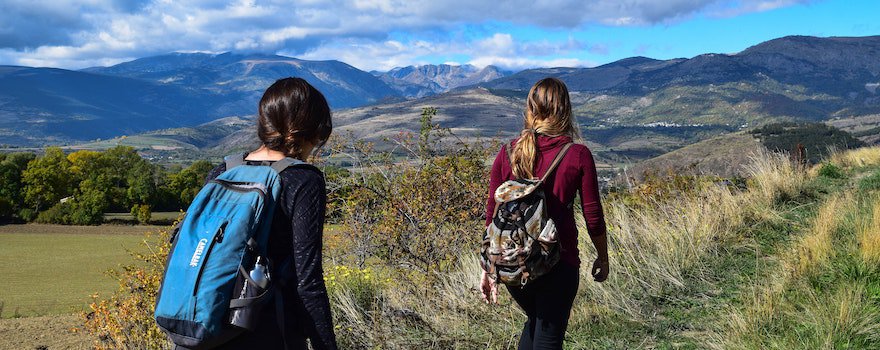
Today, the root of Rhodiola rosea is reclaiming its place in Western medicine and addresses many ailments affecting our populations: depression, fatigue, stress… Thus, rhodiola is found in numerous dietary supplements and anti-stress or anti-fatigue medicines sold commercially.
Report by Pauline Petit and Charlotte Jean
Sources and scientific studies
Darbinyan V, Aslanyan G, Amroyan E, Gabrielyan E, Malmström C, Panossian A, 2007. Clinical trial of Rhodiola rosea L. extract SHR-5 in the treatment of mild to moderate depression.
Olsson EM, von Schéele B, Panossian AG, 2009. A randomized, double-blind, placebo-controlled, parallel-group study of the standardized extract SHR-5 of the roots of Rhodiola rosea in the treatment of subjects with stress-related fatigue.
Siegfried Kasper and Angelika Dienel, 2017. Multicenter, open-label, exploratory clinical trial with Rhodiola rosea extract in patients suffering from burnout symptoms.
Edwards D, Heufelder A, Zimmermann A, 2012. Therapeutic effects and safety of Rhodiola rosea extract WS® 1375 in subjects with life-stress symptoms–results of an open-label study.
Richard P. Brown, M.D., Patricia L. Gerbarg, M.D., and Zakir Ramazanov, 2002. Rhodiola rosea: A Phytomedicinal Overview.


